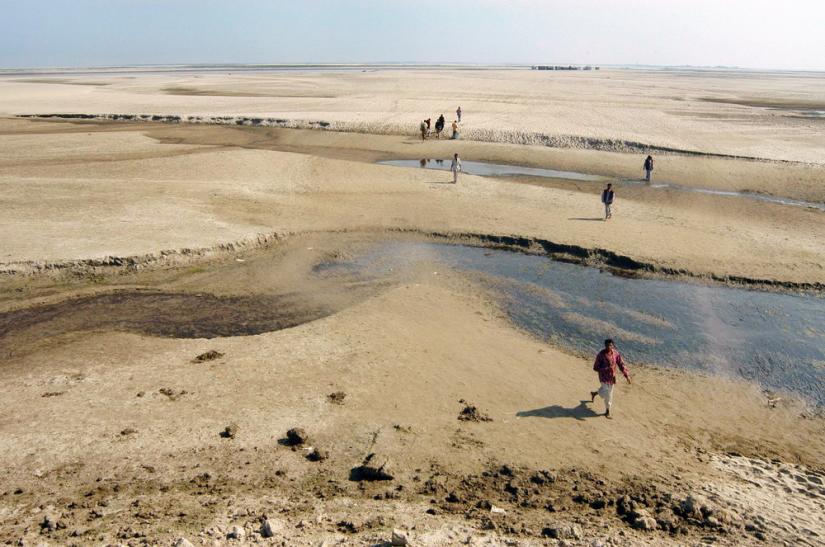 The river commission has called for a joint survey of the trans-border rivers in Bangladesh. According to the commission, this will benefit the country and if China can be involved with India, the information will be beneficial for all three countries.
The river commission has called for a joint survey of the trans-border rivers in Bangladesh. According to the commission, this will benefit the country and if China can be involved with India, the information will be beneficial for all three countries.
“We can’t do this ourselves but have recommended experts. If they agree, it’s possible,” he said.
According to sources, the Joint River Commission has been informed of preparing a report on the information including geographic location, water flow, drainage of the 57 trans-border rivers.
The commission says that it’s important to be aware of the effects of any project including the construction of dams, change of water flow, lifting and removal of water on the Bangladesh side.
They added that steps can be taken with the help of Institute of Remote Sensing or Geographic Information System.
Responding to queries on why the survey is important, the commission said that lack of a joint information bank containing data on river training, conservation, allocation, management, flash floods and flood alerts often create problems.
They said that only two years ago, flash floods destroyed crops in the haor areas and the information can be used to warn people.
Bangladesh and India share 54 trans-border rivers. The disputes regarding the rivers can be sorted through Hydro Morphological and Geo Physical survey carried out by the JRC, Water Development Board, Bangladesh Space Research and Remote Sensing Organization (SPARSO), River Research Institute and the national river commission.
The commission also feels that initiatives for the formation of a special committee to collect information on trans-border rivers with China, Nepal and Myanmar is also imperative.
A commission employee speaking on the condition of anonymity said that the rivers originate in India, Nepal, China and Myanmar and then flow into the Bay of Bengal.
“However, obstruction of river flow during high tide has made the rivers of our country dry,” he said.
He added that dams were being put up in trans-border rivers despite not being allowed by International law.
He said that the survey will help identify the reasons behind the water crisis.
 National
National
41325 hour(s) 55 minute(s) ago ;
Afternoon 04:49 ; Friday ; Jul 04, 2025
Call for joint survey of trans-border rivers
Send
Shanchita Shitu
Published : 07:30, Jan 01, 2020 | Updated : 07:30, Jan 01, 2020
Published : 07:30, Jan 01, 2020 | Updated : 07:30, Jan 01, 2020
0 ...0 ...
/st/
Topics: Top StoriesExclusive
- KOICA donates medical supplies to BSMMU
- 5 more flights to take back British nationals to London
- Covid19: Rajarbagh, Mohammadpur worst affected
- Momen joins UN solidarity song over COVID-19 combat
- Covid-19: OIC to hold special meeting
- WFP begins food distribution in Cox’s Bazar
- WFP begins food distribution in Cox’s Bazar
- 290 return home to Australia
- Third charter flight for US citizens to return home
- Dhaka proposes to postpone D8 Summit
Unauthorized use of news, image, information, etc published by Bangla Tribune is punishable by copyright law. Appropriate legal steps will be taken by the management against any person or body that infringes those laws.
Bangla Tribune is one of the most revered online newspapers in Bangladesh, due to its reputation of neutral coverage and incisive analysis.
F R Tower, 8/C Panthapath, Shukrabad, Dhaka-1207 | Phone: 58151324; 58151326, Fax: 58151329 | Mob: 01730794527, 01730794528


